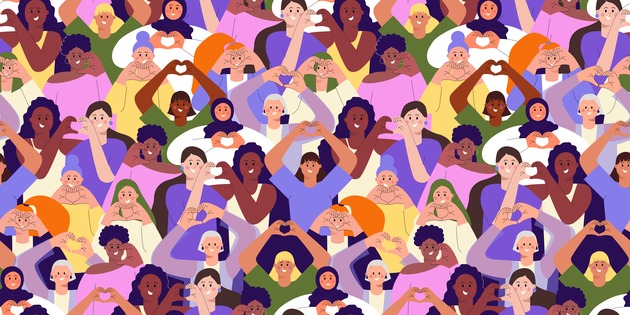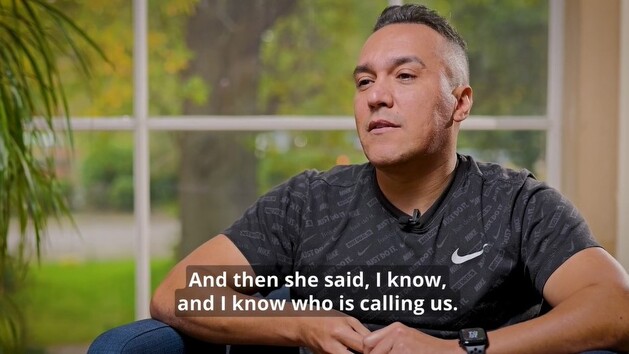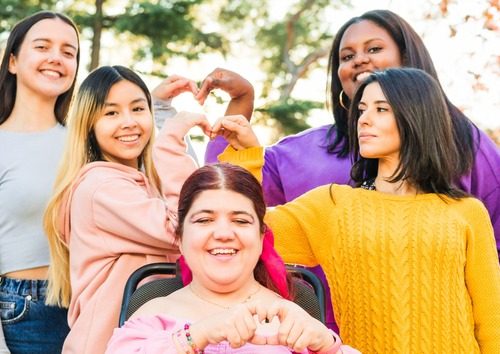08 March 2024| St. Albans [Jude Jeanville and NCHE with tedNEWS]
As a forerunner to the 8 March International Women’s Day, 2 March was the ‘International Women’s Day of Prayer’, an opportunity for women to strengthen their ties with other Christian women as they pray together. This article by Jude Jeanville addresses the theme of this year’s International Women’s Day #InspireInclusion. Included is a video link from Newbold College of Higher Education (NCHE), “Answering God’s call together”. [Ed]
Despite the progress made, women are excluded from many opportunities and privileges that men enjoy. While other demographics and issues make the headlines, women are still being discriminated against daily. According to Oxfam, “gender inequality is the oldest and most pervasive form of inequality.”[i]
Gender discrimination leaves women underpaid, undervalued, undermined, underrepresented, undereducated, and unhealthy.
Lack of decent pay. “Globally, women earn 24 percent less than men. 700 million fewer women than men are in paid work.
Lack of decent work. 75 percent of women (600 million) in developing regions are in the informal economy, where they are less likely to have employment contracts, legal rights, or social protection.
Unpaid care work. Women do at least twice as much unpaid care work, such as childcare and housework, as men – sometimes 10 times as much, often on top of their paid work. The value of this work each year is estimated at least $10.8 trillion.
Longer workdays. Women work longer days than men when paid and unpaid work is counted together.
Less leisure. Globally, a young woman today will work on average the equivalent of four years more than a man over her lifetime.”[ii]
Why is Society not winning the fight over the inequality of women? Have we failed to tackle the source of the problem?
Many genuinely and otherwise believe that women by nature are inferior to men (ontological inequality) and, or that the alleged guilt of Eve in bringing sin into the world subjects all women to permanent subordination to men (functional inequality), a position often supported by the misinterpretation of a few texts by Paul. These beliefs have been handed down through the centuries by ancient philosophers, Church Fathers, the teachings of the Christian Church, and other faiths.
Philo in an Apocryphal book, states, “better is the wickedness of a man than a woman who does good; it is a woman who brings shame and disgrace.”[iii]
Aristotle, who helped shape Western thought, maintained “that it is precisely because the male is by nature superior and the female inferior that the one rules, and the other is ruled.”[iv]
Augustine, who believed that women were only created for reproduction, said, “It is still Eve the temptress that we must beware of in any woman.”[v]
Thomas Aquinas said, “Woman is defective and misbegotten.”[vi]
Tertullian said, “You are the devil’s gateway; you are she who first violated the forbidden tree….”[vii]
These characterizations of women which undergird the rationale for discriminating against women are demoralizing, demeaning, discriminatory, misogynistic and unconscionable. In Britain today, this would be considered “hate speech.”

“The Bible affirms the equality of human beings and human rights between women and men; whatever human rights there may be, they belong no less to women than to men.”[viii] In the Old and New Testaments, women are depicted as having equal opportunities. In the line of the great leaders of Israel, Deborah succeeded Moses and Joshua, and “all Israel came to her” Judges 4:4,5. Nine other female prophets both spoke and exercised authority.
Jesus gave women value, voice, visibility, and vocational equality, and prayed for equality in his church, “That they all may be one; as thou, Father, art in me, and I in thee…” John 17:21. Equality is an intrinsic quality of the godhead in whose image male and female are made, and is quintessential to the Church’s witness to the world.
The Christian Church and Society must change the way women are seen and treated. The unsubstantiated pre-suppositions or beliefs that undergird inequality must be challenged.
Well over a century ago, Ellen White instructed church leaders that “The tithe should go to those who labour in word and doctrine, be they men or women.” She added: “Seventh-day Adventists are not in any way to belittle woman’s work.” (Evangelism, p. 492)
“It is the accompaniment of the Holy Spirit of God that prepares workers, both men and women, to become pastors to the flock of God.” (Testimonies for the Church, 6:322)
The General Conference of Seventh-day Adventists’ official position on gender equality states, “Seventh-day Adventists believe that all people, male and female, are created equal, in the image of a loving God. We believe that both men and women are called to fill a significant role in accomplishing the primary mission of the Adventist Church: working together for the benefit of humanity…”[ix]
I call on faith leaders to “Inspire Inclusion” by washing their hands of the sins of misogyny, patriarchy, and male entitlement, and treat women equally.
When women succeed, families and nations win.
Answering God’s call together.

Watch “Answering God’s Call together”.
Read more about International Women’s Day of Prayer.
Read more about International Women’s Day – #InspireInclusion
_____________________________________________________________________
Pastor Jude Jeanville is the author of Justice for Women: The Cry to End the Pandemic of Discrimination, Intimidation, Misogyny, Abuse, and Violence against Women in Society and Religious Communities.
References:
- https://www.oxfam.org/en/what-we-do/issues/gender-justice-and-womens-rights#
- https://www.un.org/en/un75/women_girls_closing_gender_gap David M. Scholer, “Women,”
- Dictionary of Jesus and the Gospels, ed. Joel B. Green, Scot McKnight, and I. Howard Marshall (Downers Grove, IL: InterVarsity, 1992), p. 886.
- Aristotle, Politics (350 BCE), Book One, Parts V-VII https://www.jstor.org/stable/411780775.
- F. Forrester Church. The Harvard Theological Review, Vol. 68, No. 2 (Apr.1975), p. 1 (Cambridge University Press). https://www.jstor.org/stable/1509087. (Accessed June 8, 2023)
- Ibid.
- Pierce, Ronald W. Groothuis, Rebecca Merrill Fee, Gordon D. Discovering Biblical Equality: Complementarity Without Hierarchy (Downers Grove, IL, InterVarsity Press, 2005), p. 306.
- https://www.imf.org/en/Publications/fandd/issues/2019/03/closing-the-gender-gap-dabla9.
- https://www.adventist.org/official-statements/womens-issues/
[Photos: Shutterstock and Newbold College of Higher Education].



